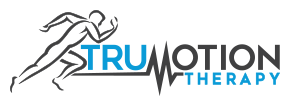April 8th, 2020
Runner’s Knee
Patellofemoral pain syndrome (PFPS) describes a painful irritation of the cartilage behind your kneecap. Although anyone may be affected, it is often the result of overuse of the knee in sports that require jumping or running so it is sometimes referred to as “Runner’s knee”. PFPS is the most common cause of knee pain in the general population, affecting an estimated 25% of adults.
One of the most common causes of PFPS is an imbalance between the muscles that help to guide your kneecap in its V-shaped groove at the end of your thigh bone. Repeatedly flexing and extending a misaligned kneecap leads to pain and swelling. Misalignment of the kneecap (patella) is often secondary to problems in the hip and foot, especially weakness of your gluteal muscles or unstable feet.
PFPS produces a dull pain behind the kneecap that is aggravated by prolonged walking, running, squatting, jumping, stair climbing or arising from a seated position. The pain is often worse when walking downhill or down stairs. Longstanding misalignment can cause damage to the cartilage, which results in popping, grinding or giving way.
Grinding and popping sounds in the knee are very common and not necessarily a cause for concern.  See the video below for more information.
A condition that causes pain in a similar area is called patellar tendinitis, aka ‚Äújumper‚Äôs knee.‚Ä̬† Pain is usually felt just below the kneecap on the patellar tendon.¬† This is similar to most cases of tendinitis [LINK].
Our Approach to treating Runner’s Knee and Jumper’s Knee:
Many people in Charlotte have found knee pain relief through chiropractic, manual therapy, and corrective exercise here at TruMotion Therapy.  Since each person is unique, an individual approach is taken with each patient.  Listed below is our general approach at providing knee pain relief.
- Address training errors. Just because something hurts, it doesn’t mean you have to stop training.  We will find the right level of training that will allow you to heal while staying as fit as possible.  Additionally, our AlterG Anti-Gravity Treadmill allows you to run and walk with less impact so you can continue training and rehab quicker.
- Address the joints of the hips and feet. Research has found chiropractic adjustments can help restore motion of tight joints in the hips and feet, which may lead to reduced foot pain.
- Loosen the muscles around the thigh and calf. We use techniques like massage, cupping, dry needling and laser therapy to reduce muscle tension that may be over-stressing the knee joint.
- Corrective exercise and stretches help restore balance and alignment in the body to help ease pain and prevent it from recurring.
If you live in or around the Charlotte area and are experiencing knee pain that doesn’t seem to get better, click here to work with our team and begin finding relief.





